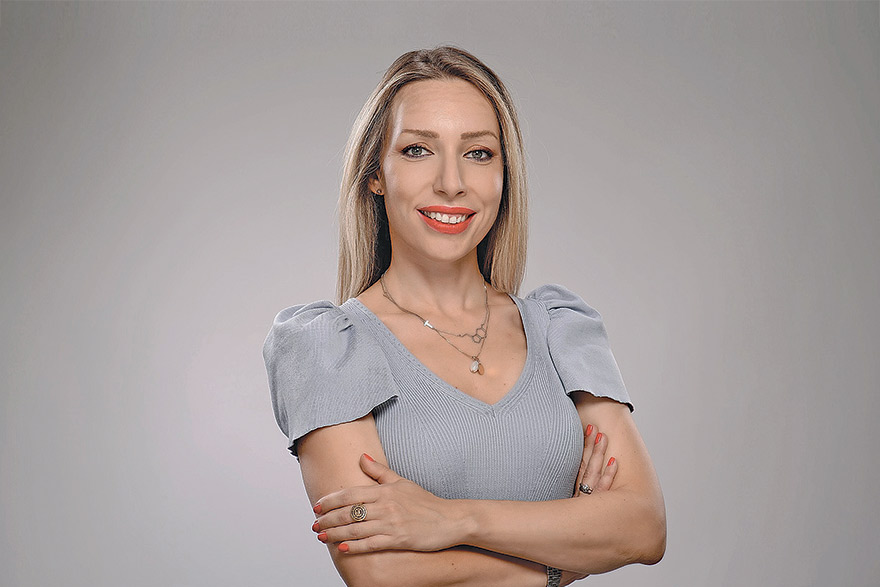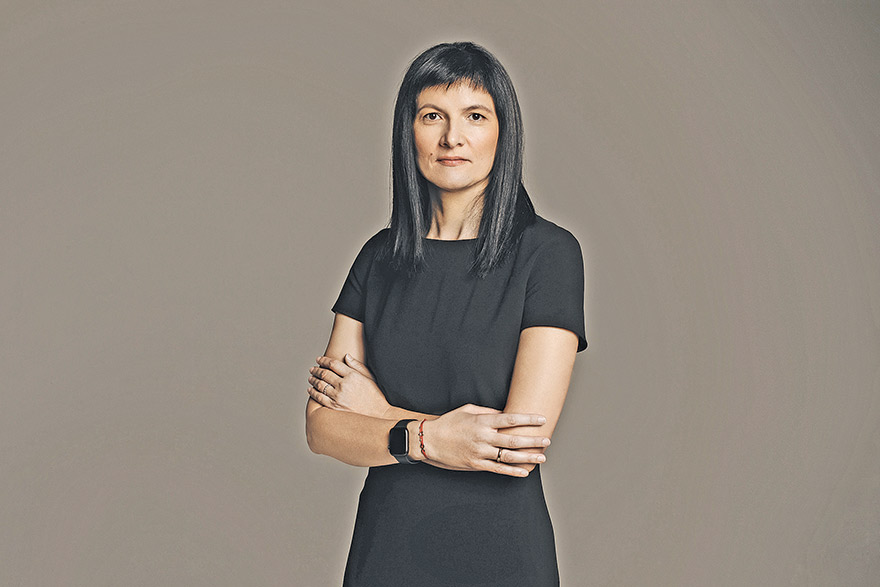Chapter 4 is part of a group that operates on as many as 10 markets as the exclusive partner of BCW Global. The Chapter 4 team comprises mainly senior staff members who’ve amassed rich experience and knowhow in various industries, but also a willingness to develop, learn and monitor all that’s new, which is appreciated by both clients and associates
Digital transformation has created new business opportunities and led to the emergence of some industries that didn’t previously exist, while the pandemic has brought a paradigm shift, a higher level of engagement, connectivity, activism and solidarity, above all. Nothing will be the same again, insist our interlocutors.
What’s brought to you by your partnership with BCW Global, which is one of the world’s leading networks? The most modern tools? Higher standards? Exchanges of experience? New clients?

TB: Chapter 4 is part of the eponymous group that works in the area of strategic communications across Central and Southeast Europe. Although the agencies are mutually independent, since our establishment, a full 12 years ago, we’ve nurtured a spirit of community in terms of development, exchanging knowledge, experiences and tools, but also effectively supporting shared clients on different markets. The partnership with BCW, one of the world’s leading networks, instils additional confidence in the quality of services among clients, though I must emphasise that local knowledge and experience are of the greatest value to clients.
A lot has changed throughout all these years that Chapter 4 has existed, and the most change has related to the means and channels of communication. Does that make it easier or harder for you to tailor campaigns to each client?
MAB: At Chapter 4 we’ve always applied the ‘tailor made’ principle when it comes to preparing our clients’ strategies and campaigns. There is simply no other model, because every client has their own goals, business vision, purpose and plans, which makes it impossible to apply the same model to multiple clients.

It’s true that tools and channels of communication have changed over the years, and we’ve adapted accordingly, endeavouring to always choose the optimal and most effective ways of communicating for a given campaign and the industries that clients represent. In essence, the communication strategy follows the business plans of the company or brand, and it is up to us to deploy the right tools and channels to ensure the messages reach the target audience.
You are known for taking a broad overview of the bigger picture and for combining public relations tools with other areas of communication and marketing. Do you believe that such an integrated approach brings the best results and satisfied clients?
TB: Thank you for these words! It means a lot to us that our working method is recognised and appreciated. Communication is a strategically important function. We believe in taking a tailor-made approach to every client and every project, which means that we deal with the strategic planning of communication.
Users expect communication from brands and companies that’s tailored to them specifically, and under their conditions
This provides strong support to the business goals of companies, on the one side, while building lasting and high-quality relationships with target groups on the other. An integrated approach to communication is very important, because it is aligned with the times in which we live and ensures that key messages reach the right audience on time. I must also mention that I’m not overlooking creativity when I emphasise strategy, because that actually gives us added value.
Clients value your experience, knowhow, familiarity with the market, analytical and proactive approach etc. How important is it that you also have excellent contacts in the media and institutions that are important to the shaping of public opinion?
MAB: The Chapter 4 team comprises mainly senior staff members who’ve amassed decades of experience and knowhow in various industries. Each member of the team has an industry in which they specialise, but essentially all of us in the team are constantly evolving, learning and monitoring all new developments – not only in the field of communications, but also in complementary industries and business generally. And that’s what our clients and associates appreciate.

It is natural for us to strive to have the best possible relations with the media and institutions, because we rely on each other in our work and support one another, but that’s not the decisive factor. Transparency and ethics in work are very important to us as a team. We’re also perhaps the only agency in Serbia to have signed the Helsinki Declaration of 2017, when – at the Global Summit in Helsinki – the International Communications Consultancy Organisation (ICCO) called on the global PR industry to adhere to 10 principles of ethical practice (Helsinki Declaration). Considering the ever-increasing influence of the PR industry worldwide, and the significant dangers of unethical behaviour, this declaration aims to unite the global PR industry under the auspices of ethical practice.
Digital transformation was discussed for years, but it became a reality for all of us overnight, thanks to the pandemic. How much has that shifted your perception and created new business opportunities?
MAB: That’s right! It was spoken about for a long time, then the pandemic happened and everyone had to react quickly and make decisions, transforming the way they work and the way they communicate. If we can say that something good came out of the pandemic, then that would be the fact that it is now much clearer to the top management of companies why communications are so strategically important. It is also a good thing that two-way communication has been enabled between managers and employees, and that it is becoming increasingly dynamic.
Chapter 4 is perhaps the only agency in Serbia to have signed the Helsinki Declaration, which defines 10 principles of ethical practice
The flip side to that coin is that users expect communication from brands and companies that’s tailored to them specifically, and under their conditions. One study shows that smartphone users touch their phones more than 2,600 times a day. This means that the communication users want must be fast, consistent and interesting, but also stimulating for users. And digital transformation has really created new business opportunities and led to the emergence of some industries that didn’t previously exist.
Can anyone predict what communications will look like in the post-covid period? We’ve certainly all learned something new over the past two years…
TB: It isn’t news to say that crises cause great changes – economic, political and social. And that people and companies are affected when global crises occur. If there’s one key lesson from the years marked by covid-19, that is that we must create stability through constant change, all the time. And that isn’t simple at all.
From the perspective of our current situation, nothing will ever be the same again. We’ve changed personally and professionally, as have our thoughts, habits and tendencies. That impacts on everyone, from individuals, families and teams, to brands, organisations and industries, and we are redefined as a consequence of crisis, uncertainty or difficulty.
That’s why communication is experiencing a paradigm shift, with an increased level of engagement, connection, activism and solidarity, above all, and a greater appreciation for transparency when building reputation.